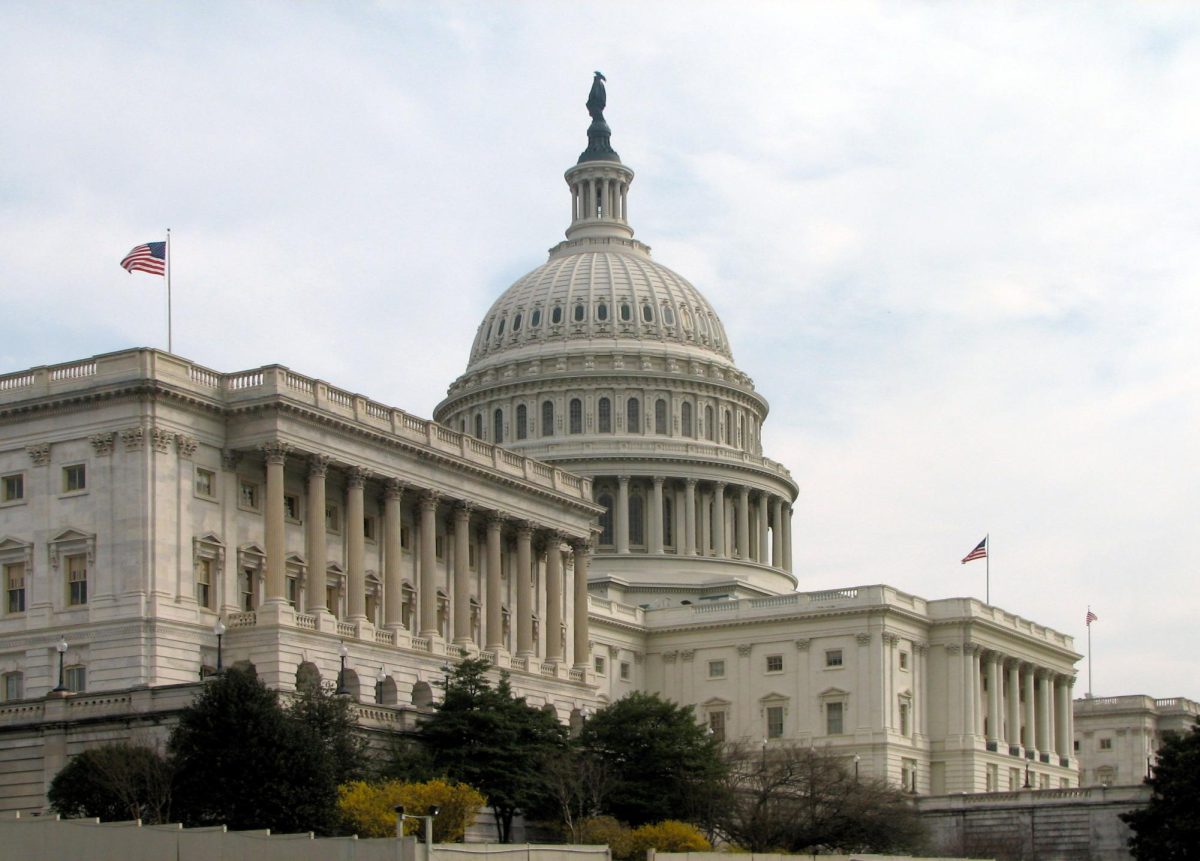
Wikimedia Commons
After the House settlement this summer allowed universities to pay student-athletes directly, both Republicans and Democrats have introduced legislative proposals to reshape college sports.
Three Democratic senators introduced legislation seeking to reshape the future of college sports by standardizing rules for name, image and likeness (NIL) deals, expanding revenue for women’s and Olympic sports and setting federal regulations for transfers, scholarships and academic protections.
If passed, the Student Athlete Fairness and Enforcement (SAFE) Act, sponsored by Senators Maria Cantwell (D-Wash.), Cory Booker (D-N.J.) and Richard Blumenthal (D-Conn.), would codify federal protections for student athletes and amend the 1961 Sports Broadcasting Act (SBA). The SBA currently allows professional leagues like the NFL to sell their media rights collectively, but it excludes college conferences, so universities must negotiate individually. The system therefore favors powerhouse programs in the Southeastern Conference (SEC) and Big Ten that can command massive media deals, while smaller schools and conferences are left behind.
Expanding the SBA to include collegiate leagues could allow schools to pool their media rights, boosting revenues to help smaller schools maintain at least the same number of roster spots and scholarships they offered during the 2023–24 academic year, if not more.
Lawmakers have long viewed SBA changes as a possible solution to the growing financial challenges facing college athletics, though SEC and Big Ten leaders have opposed such consolidation. Given that both conferences currently negotiate their own media deals, pooling rights with smaller schools could reduce the value of their exclusive arrangements.
When announcing the bill, Cantwell said it was designed to balance resources across schools.
“This legislation is a path through the new world of NIL,” Cantwell wrote in a press release. “This bill will protect athlete rights, preserve women’s and Olympic sports and help smaller schools compete. It is a fair shake for everyone, instead of the biggest, richest schools.”
At many schools, revenue from men’s athletics underwrites women’s and Olympic sports, which tend to bring in less ticket and media revenue. Under the current system, smaller, less lucrative schools struggle to fund those teams, leading to cuts or reductions in scholarships. Supporters of the SAFE Act argue that pooling media rights could stabilize revenue across all conferences.
Blumenthal said the National Collegiate Athletic Association (NCAA) has previously failed to protect athletes’ rights.
“For far too long, college athletes had their basic economic rights denied while the NCAA failed to protect their health, safety and academic success,” Blumenthal wrote in the press release. “Our measure centers athletes’ rights and wellbeing with real reforms while bringing schools the clarity they need and promoting women’s and Olympic sports.”
The bill outlines a broad set of protections for student-athletes, including a national NIL standard, limits on agent fees and a federal certification system for NIL agents. These protections guarantee scholarships for 10 years after a player’s athletic eligibility expires — allowing athletes to return to school and complete their degree — and five years of post-eligibility medical coverage. The bill would also allow athletes to transfer schools twice without penalty.
These protections intend to reduce the academic and medical setbacks athletes often face once they stop competing.
The bill also preserves the revenue-sharing cap agreed upon in the recent House settlement, which sets a 22% cap on distributing revenues to athletes while also approving a $2.85 billion payout for lost NIL opportunities between 2016 and 2024.
However, the SAFE Act faces a steep climb in Congress. It currently lacks Republican support, and Senate Committee on Commerce, Science and Technology Chair Ted Cruz (R-Texas), who will decide if the bill moves forward, was unaware of its introduction. In the House, Majority Leader Steve Scalise (R-La.) has already expressed opposition to altering the SBA.
The SAFE Act does not address whether athletes should be classified as employees or grant the NCAA liability protections to enforce its rules, both of which are mentioned in the competing Republican-backed Student Compensation and Opportunity through Rights and Endorsements (SCORE) Act, introduced in the House earlier this summer.
The NCAA and Power Five conferences — now the Power Four since the Pac-12 conference dissolved in April 2024 — strongly back The SCORE Act and have spent millions of dollars lobbying Congress since 2019 to set and enforce their own set of rules without running into antitrust laws. Protections outlined in the SCORE Act would allow individual conferences to implement rules on compensation, transfers and eligibility, while also ensuring that athletes are never classified as employees or able to unionize.
The Republican-proposed bill also mirrors parts of the House settlement, establishing national NIL standards, regulating agents and requiring schools to maintain a minimum number of sports programs.
The reform bills and wider debates over the future of college sports have drawn significant lobbying from major players in college athletics. The NCAA reported $520,000 in federal lobbying expenditures so far in 2025, while the SEC spent $400,000. The Big Ten reported $460,000 in lobbying in 2024.
Still, the SCORE Act has run into some resistance within the Republican Party itself. Several Texas Republicans have criticized the NCAA’s role in the bill, arguing it grants the association too much power.
The SAFE Act now lies with Commerce Committee Chair Ted Cruz (R-Texas), who will decide whether to advance the bill. Without his support, the legislation is unlikely to advance to a full Senate vote.